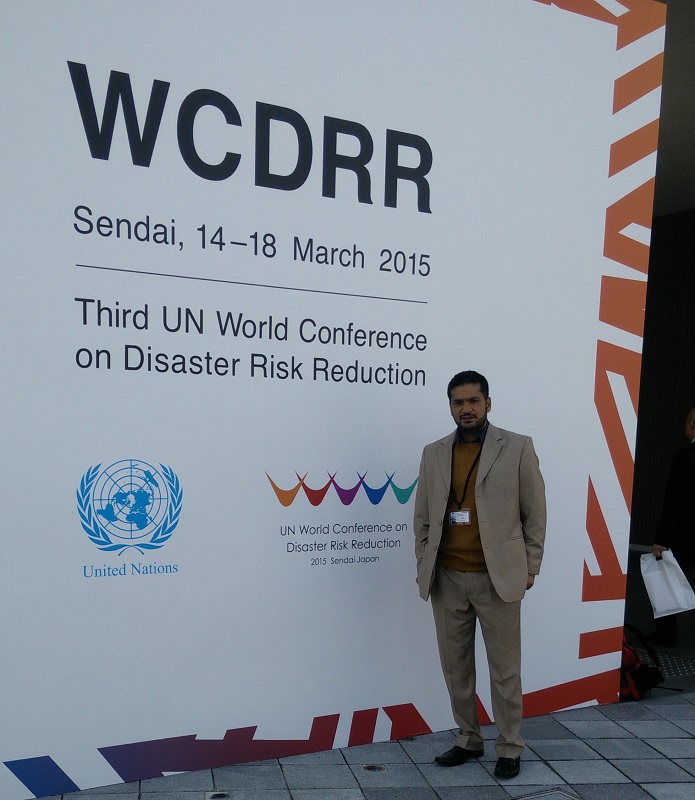Syed Shahnawaz Ali of Islamic Relief Philippines sets out the challenges to which the world must respond in agreeing action to build a safer world for all.
In 2005, governments adopted the Hyogo Framework, which set out a plan of action to reduce disaster risk. Ten years later, the international community is about to conclude discussions in Sendai, Japan, on the second Hyogo Framework and possible political commitments to improve disaster risk management.
Huge gaps remain in knowledge, policy and technical areas of disaster risk management. Whilst cities in numerous countries signed-up to the United Nations’ strategy for disaster reduction, in most cases this initiative remains on paper only. Involving local government in disaster reduction work, and raising the visibility of such efforts are only the beginning of a long journey toward a fully disaster-resilient world.
Poorest communities bearing the brunt

It is crucial that the new framework responds to the trend that is seeing increasing loss of life, property and development opportunities in the poorest countries on earth. Assessing and monitoring the escalating trend is a major challenge, but there is little apparent effort to record baseline data in any of the most vulnerable countries.
Many local disasters are not properly recorded by governments – so global statistics are only indicators. Coordination with national and local government must be improved, to help reduce losses, and greater investment in disaster-resilient infrastructure is vital.
We need to get better at knowledge management. There is no central register of disaster risk reduction activities carried out, resulting too often in precious resources invested in reinventing the wheel. Strategic planned measures are essential to generate and share research and knowledge initiatives that support quality improvements and boost impact.
The framework must also harness the experience and indigenous knowledge within disaster-prone communities by ensuring local people have a strong voice and an active role in designing and delivering projects.
Maximise resources and collaboration for lasting impact
With limited resources, we need to anchor disaster risk reduction, climate change and development measures together and integrate processes in knowledge, policy and practice with urgency. In addition, the framework must prioritise collaboration as the key to achieving resilience. All new initiatives should be a truly coordinated effort, a joint venture with government, donors, civil society and the private sector that ensures impact and long-term sustainability.
In these increasingly challenging and uncertain times, the need for strong agreements and bold action should not be derailed by wrangling over terminology and abstract concepts. Without immediate, collective action, the situation will only get worse.
Islamic Relief is pushing for decisive and urgent action at the World Conference on Disaster Risk Reduction and works extensively with vulnerable communities to improve their resilience to disasters.










